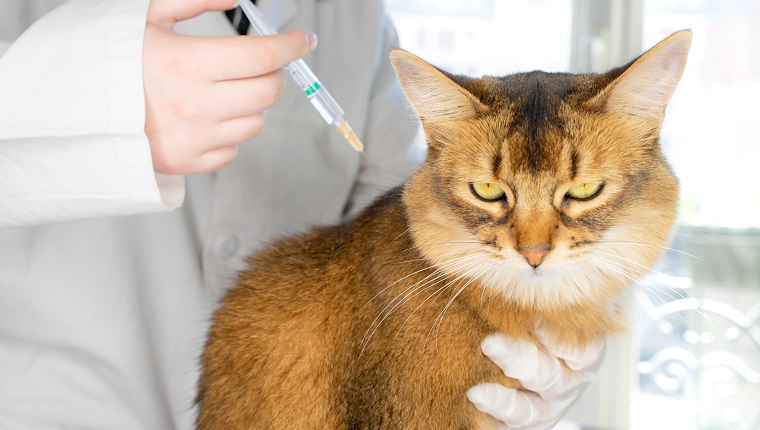After a resurgence in Oregon of feline panleukopenia, or feline distemper virus, local veterinarians and shelters are stressing the importance of vaccinations.
The uptick in cases could create a domino effect from limited care availability during the COVID-19 pandemic.
Here’s what you should know about this virus and how to keep your cat safe.
Feline Panleukopenia — What Is It?
Handsome Hamish the Scottish fold belongs to our Client Care Co-Ordinator Leah
He’s been vaccinated today to fully protect him against cat flu/feline panleukopenia and feline leukaemia pic.twitter.com/YlDdcsTiYz
— White Cross Vets (@WhiteCrossVets) June 24, 2021
As a highly contagious and potentially fatal disease, feline panleukopenia is not a virus that you want circling your neighborhood. Being aware of its resurgence is critical for the care of your cat, as well as appropriately vaccinating against it.
“That is not a problem that’s been unique to Oregon or Portland even, this is a problem we are seeing nationwide,” Doctor Stephen Kochis, Chief Medical Officer with the Oregon Humane Society, told KGW8.
“The population that is most at risk is cats that are unvaccinated,” Kochis added.
There is no cure for this virus, but veterinarian intervention can keep it from becoming fatal. Vets stress vaccination because cats can become re-infected, even after recovering. Though, immunity from future infections is also possible.
Symptoms present in a cat or kitten infected with the virus include lethargy, lack of appetite, vomiting, diarrhea, and fever. Of course, many things can cause these symptoms, which is why it is always best to seek your veterinarian’s diagnosis.
What Does COVID-19 Have To Do With It?
This is Milo, one of our cats.
He has cerebellar hypoplasia or ‘Wobbly Cat Syndrome’, often caused by in utero feline panleukopenia virus infection.
Without supportive care, 90% of cats unfortunately die from FPLV.
Good news: there is a vaccine! #VaccinesWorkForPetsToo pic.twitter.com/v53JbRHqv1
— Dr. Philippe Chouinard (@DrPChouinard) November 28, 2019
While there’s no direct link between panleukopenia and COVID, the pandemic can make it harder for pet parents to seek proper care and vaccinations throughout its duration. Kochis believes this is the reason for the uptick.
“Veterinary services have been very limited, so people have not had great access to wellness care or preventative care,” says Kochis. “That provides a great opportunity for this virus getting spread.”
With proper vaccinations, however, Kochis says that the risk of transmission is very low.
CatTime also urges pet parents to keep up with vet visits and appropriate vaccinations for cats. You can find out more about feline panleukopenia here.
Do you vaccinate your cat against diseases like feline panleukopenia? Do you keep up with regular vet checkups to make sure your cat stays healthy? Then let us know in the comments below.









